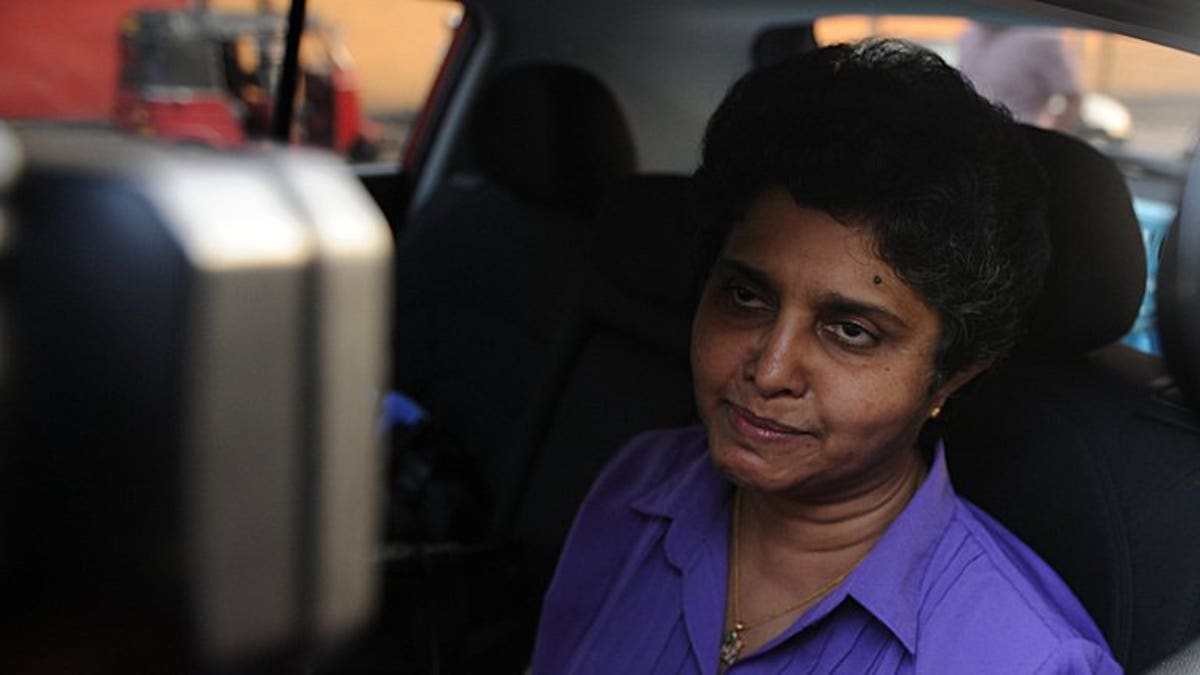
Sri Lanka's former chief justice Shirani Bandaranayake leaves her official residence in Colombo, on January 15, 2013. Sri Lanka has brought criminal charges of corruption against Bandaranayake whose sacking earlier this year was internationally criticised as a blow to judicial independence. (AFP)
COLOMBO (AFP) – Sri Lanka Monday brought criminal charges of corruption against former chief justice Shirani Bandaranayake whose sacking earlier this year was internationally criticised as a blow to judicial independence.
Bandaranayake, the country's first female head of the judiciary and the first judge to be impeached, was brought before a Colombo magistrate who impounded her passport and scheduled a hearing for February.
"The magistrate invited her to take a seat among the lawyers, but she opted to remain in the dock and hear the charges," the head of the Bar Association of Sri Lanka, Upul Jayasuriya, told AFP.
He said more than 100 lawyers signed up to defend Bandaranayake who is accused of failing to disclose bank accounts in line with an assets declaration required of her when in office.
"This is a frivolous allegation. She is accused of not declaring bank accounts where she had a zero balance," Jayasuriya said.
There was no immediate comment from the anti-graft commission which filed the case against Bandaranayake.
Under the Bribery Act, she could be fined a maximum of 5,000 rupees ($38) and imprisoned for up to seven years.
Sri Lanka insists it followed proper legal procedures in firing Bandaranayake, 54, on charges of professional and personal misconduct earlier this year and moved the anti-graft commission on Monday to file criminal charges against her.
Bandaranayake was dismissed by President Mahinda Rajapakse on January 13, two days after parliament voted to impeach her, despite a chorus of international criticism.
The United States led international calls objecting to the impeachment as an assault on judicial independence and rule of law in the island.
UN rights chief Navi Pillay during a visit to the island last month said rule of law had eroded and judicial independence undermined in the island as it emerges from decades of ethnic war.
The impeachment process was launched in November after several Supreme Court decisions went against the government of Rajapakse, who has tightened his hold on power since crushing Tamil Tiger rebels in May 2009.
Ruling party lawmakers found Bandaranayake guilty of tampering with a case involving a firm from which her sister bought an apartment, of failing to declare dormant bank accounts and of staying in office while her husband faced a bribery charge.
She has said the charges were politically motivated and that she was denied a fair trial by members of parliament.
